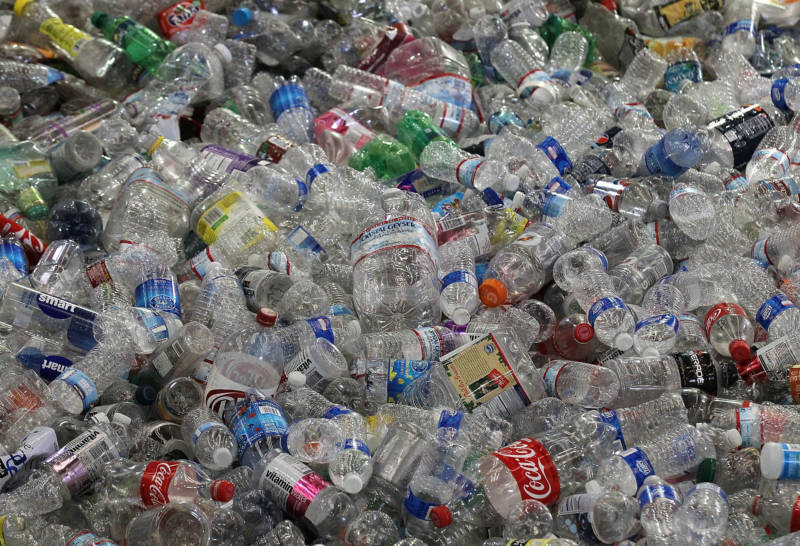These California Environmental Bills Made It to the Next Round

For California bills and their sponsors, Friday was pass-or-die time in the Legislature. It’s an annual rite of spring: If on a certain date proposed bills don’t pass out of their house of origin, be it the Assembly or the Senate, they die for the year.
This year, the Legislature considered a slate of new environmental policies.
A bill that prohibits California from authorizing new oil and gas infrastructure on state public lands, AB 342, moved on to the Senate. A bill that would require smog checks for semitrucks, SB 210, moved on to the Assembly.
A mandated buffer between new oil wells and homes and schools, AB 345, failed in the Appropriations Committee, but it will be considered in 2020.
Kathryn Phillips, director of Sierra Club California, the group’s legislative and regulatory lobbying arm in Sacramento, said she couldn’t remember a year that so many new environmental bills passed their house of origin.
“So many of them did, and they were good bills that protect wildlife, protect clean air, clean water, and help make sure Californians are getting the kind of environment they want,” Phillips said. “On balance, the first half of this year was very good.”
But Howard Penn, executive director of the Planning and Conservation League, a California environmental advocacy organization, saw the glass as half-empty when it comes to big environmental issues. He pointed to the Legislature’s failure, at least for this year, of increasing transit-oriented development to reduce greenhouse gas emissions, a goal shared by many of the state’s leading environmentalists.
SB 50, the controversial housing density bill proposed by San Francisco State Senator Scott Wiener, sought to achieve this goal, but it was blocked in the Legislature. Penn’s group did not endorse or oppose the bill because it sought legislative changes that did not materialize.
“From our perspective, we keep trying to push climate change, greenhouse gases, and better land-use policies for affordable housing forward,” Penn said. “It’s not moving at the sustenance level that we would want.”
“Some of these environmental bills are good, don’t get me wrong, but they’re nibbling away at the edges.”
Beyond bills concerning oil and gas, California is considering major changes in the recycling and manufacture of plastics, as well as legislation to counter President Trump’s agenda of general environmental deregulation.
Both SB 54 and AB 1080 moved forward last week. The companion bills seek to phase out the sale and distribution of plastics, passing despite industry opposition, though in slightly watered-down form.
Originally, the legislation targeted a wide range of plastics, such as utensils, containers and other single-use items that can’t be recycled. The original language called for a 75% reduction by 2030. After that, all plastic manufacturing would have needed to be recyclable or compostable.
After amendments, the legislation now applies to only what California’s Department of Resources Recycling and Recovery identifies as the most commonly littered items based on surveys. Lawmakers also extended the timeline for implementation.
The amendments are “tolerable changes,” said Mark Murray, an executive director of Californians Against Waste, which supports the legislation.
“We’re excited about the passage of the bills in the very strong form that they got out of both houses of the Legislature,” he said. “We’re hopeful that the Legislature will embrace this and put it on the governor’s desk.”
AB 792, another plastics bill, proposed by Assemblyman Phil Ting, D-San Francisco, moved to the Senate on May 23.
Ting’s bill establishes a minimum recycled content level in plastic bottles. It also compels the beverage industry to buy back used plastic as a way of driving a local plastics recycling market.
Originally, the bill required 100% recycled beverage bottles by the year 2035, but that requirement was stripped during a committee hearing last month. Now, the bill would require that plastic bottles be made with 75% recycled plastic by the year 2030.
Ting said that it’s important that plastic bottles are recycled in-state. “The bottles [should be] broken down in California and repurposed here, rather than shipping our waste oversees,” he said.
“Long-term, we should absolutely have 100 percent recycled content in our beverage bottles,” Ting added. “In the interim, I think setting very aggressive goals will greatly change the marketplace here.”
As the Trump Administration continues to pursue a rollback of federal environmental regulation, such as the Obama administration’s Clean Power Plan, SB 1 would replace them with state rules.
State Sen. President Pro Tem Toni Atkins, D-San Diego, is the bill’s author. In an email, she called the proposed law “California’s insurance against reckless deregulation at the federal level.”
“Dozens of vital clean air, clean water, and endangered species standards have been weakened or eliminated,” Atkins wrote. “Further, worker protections have been eroded and workplace incidents and fatalities have increased. Whatever actions the new federal regime may take, California will continue to enforce the same environmental and public health protections that have been in effect for years, as a matter of state law.”